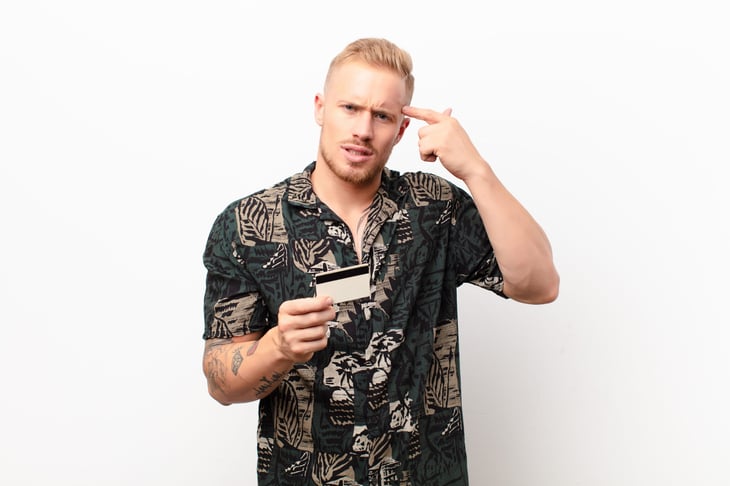
For some, a credit card is just another wallet-burning mechanism, similar to cash, that must be used to satisfy some personal need or desire.
But what happens when the magic plastic is no longer available? Could you move on with everyday life without any interruptions? Or would your world suddenly come crashing down right before your eyes?
Following are several distinct ways to determine if you are a credit card junkie.
1. You’re in denial
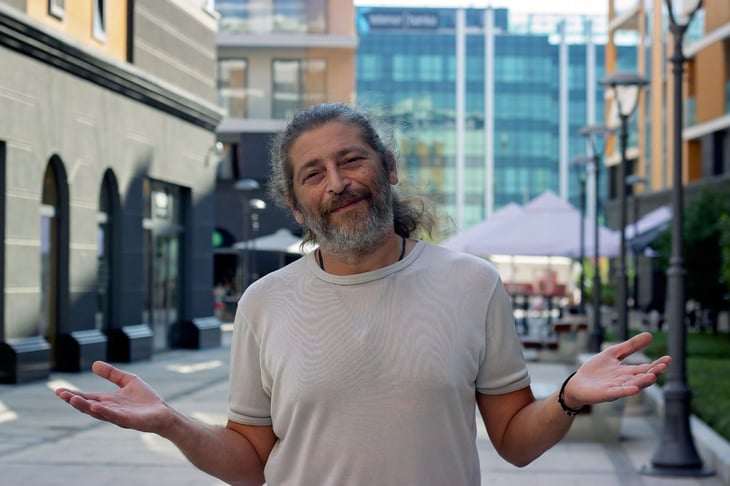
This may be one of the most prominent indicators that you are addicted.
If you have no idea how much the outstanding balances are and simply remit payments each month, there is a large chance that you’re in denial.
2. You can’t live without the magic plastic

If your credit card is lost or stolen, you find yourself in panic mode because you suddenly lack money for anything except bills.
3. You constantly apply
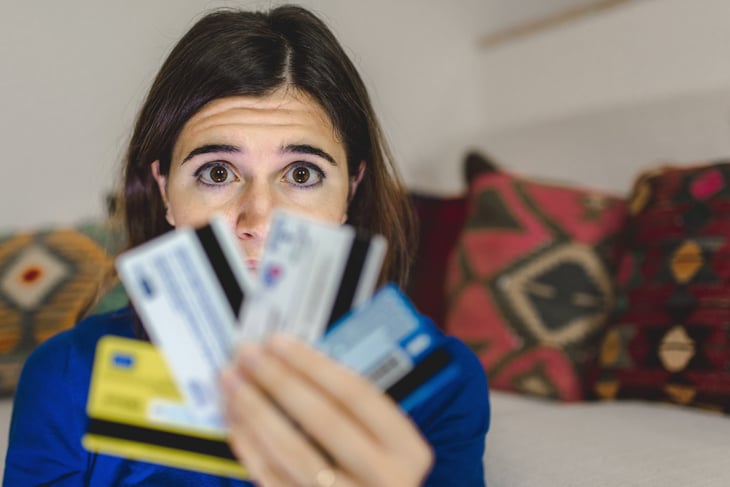
Every time your balances get up there or you run across an irresistible credit card offer, do you apply?
Perhaps this is a sign that your finances are going downhill and the almighty credit card will save the day. Wishful thinking, until reality sets in.
Applying for many cards may also make you look desperate to lenders, and hurt your credit score.
4. You pay bills any way that you can

Do you rob Peter to pay Paul or borrow money that you have no way to repay in order to cover your credit card bills? Or maybe you take out cash advances on your credit card with an exorbitant APR just to make ends meet?
Desperate times call for desperate measures, and this isn’t automatically a sign of addiction. But if it keeps happening, you should ask yourself the question.
5. APR hikes and fees don’t concern you

It doesn’t matter what the fine print says; you’ve got to have the credit card.
Even if it means paying fees up to your elbows, you’re not the least bit concerned. You may not even notice them.
6. Your debt is a secret

When the credit card debt conversation arises, you quickly change the conversation. And your partner may even be unaware of the balances you are carrying because you keep any correspondence from credit card issuers under wraps.
7. You engage in ‘good deal’ shopping

If there’s a good deal, you absolutely have to take advantage, even if the magic plastic is the only form of paying. To make matters worse, you have a ton of idle items purchased during “good deal” shopping sprees lying around the house.
8. Your cash reserves are limited
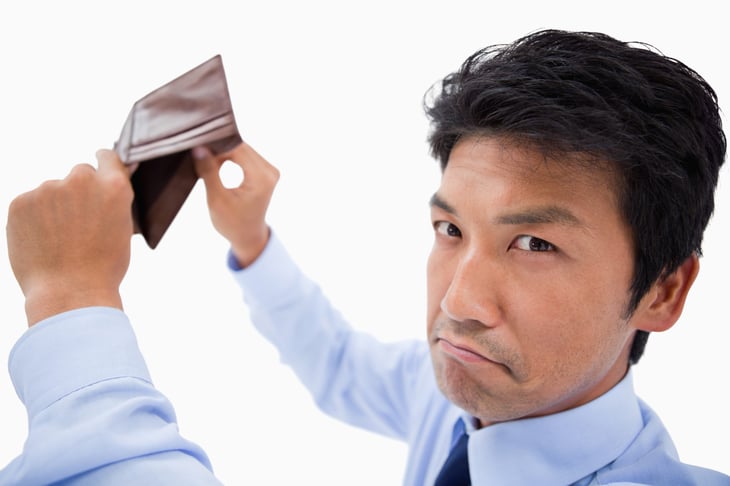
Who needs to save when there’s always money available?
If you notice your checking account balance is lower than it used to be, or you’re getting hit with bank fees, take a closer look at your wallet.
9. Your balances are multiplying at an astronomical rate

You don’t think twice about swiping away for everyday purchases, even if you are caught in the minimum payment trap and interest has spiraled out of your control.
10. You’re completely tapped out
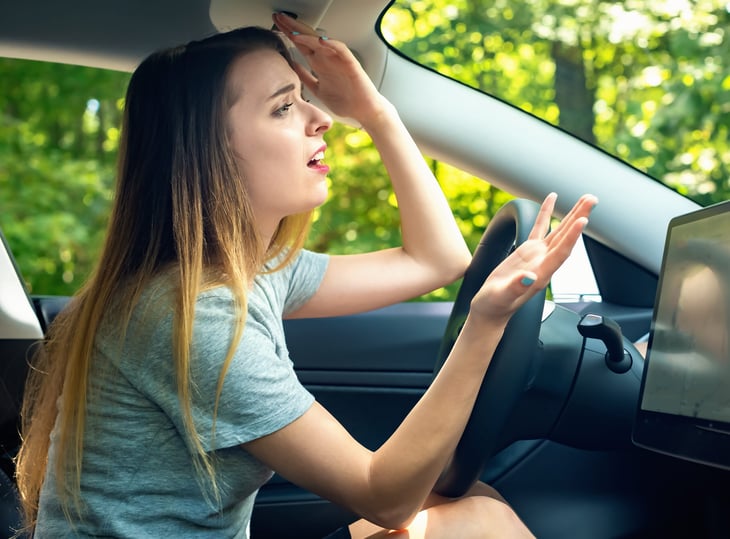
Have you maxed out all of your credit cards? Unless it is the result of some sort of genuine financial emergency, this indicates that your everyday spending is out of control, as it clearly exceeds your income.
If this sounds like you, here’s some advice
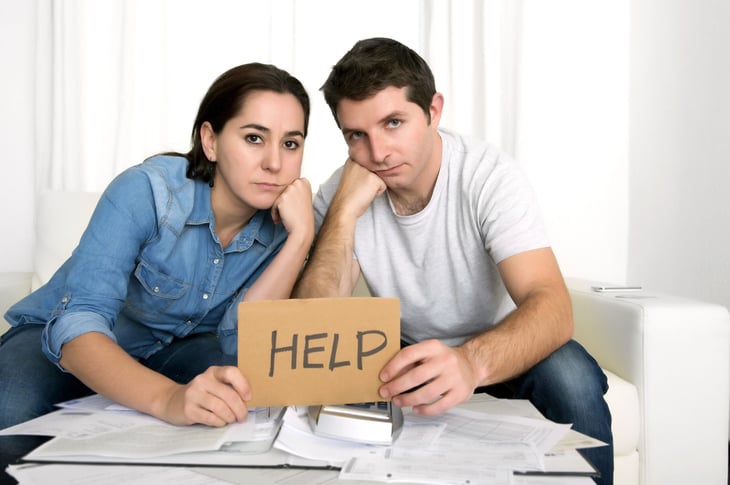
Assuming you’ve spent the last few minutes examining the symptoms of credit card addiction and decided that you need assistance, there are a few things that you can do to start getting everything under control.
It’s time to crack the whip and get a handle on your financial habits. Following are some tips to do that.
1. Assess the situation

The first step is to take a step back to really assess the situation. Determine how much you owe to each of the creditors and spell it out on a spreadsheet along with the company’s contact information, APR, due date and minimum payment.
And during this step, go ahead and give the creditors a ring to see if they’ll cut you some slack on the interest. It doesn’t hurt to ask.
2. Toss the credit cards once and for all
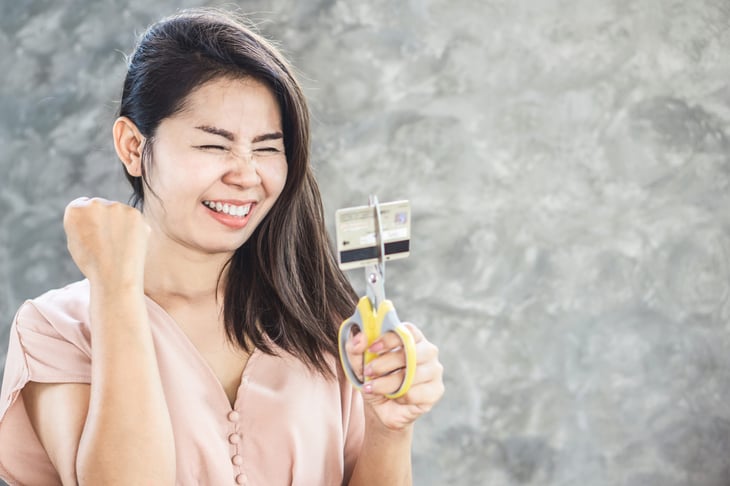
Drum roll, please, for the most painful part of the process: cutting up your credit cards.
This may not be a permanent change, but you need to force yourself to look at your spending, over and over, until the reality of your cash flow sinks in and the obsession with buying shiny new toys ebbs out.
3. Take control of your debt
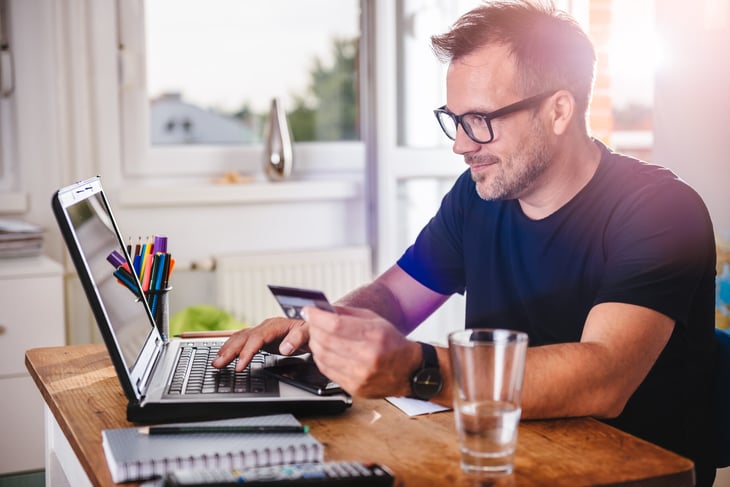
After you’ve learned to live without your credit cards, it’s time to devise a debt management strategy that coincides with your spending plan.
And if necessary, bring an accountability partner on board — someone you trust to ensure you don’t backslide.
4. Establish an emergency fund

This will be a stressful and financially vulnerable time. But at this stage, you can finally start alleviating the stress associated with not having a Plan B when you are confronted with an unexpected financial emergency. Here are “9 Tips for Starting an Emergency Fund Today.”
Digging yourself out of debt and being set free from a credit card addiction isn’t easy, but it’s worth it in the end.





Add a Comment
Our Policy: We welcome relevant and respectful comments in order to foster healthy and informative discussions. All other comments may be removed. Comments with links are automatically held for moderation.